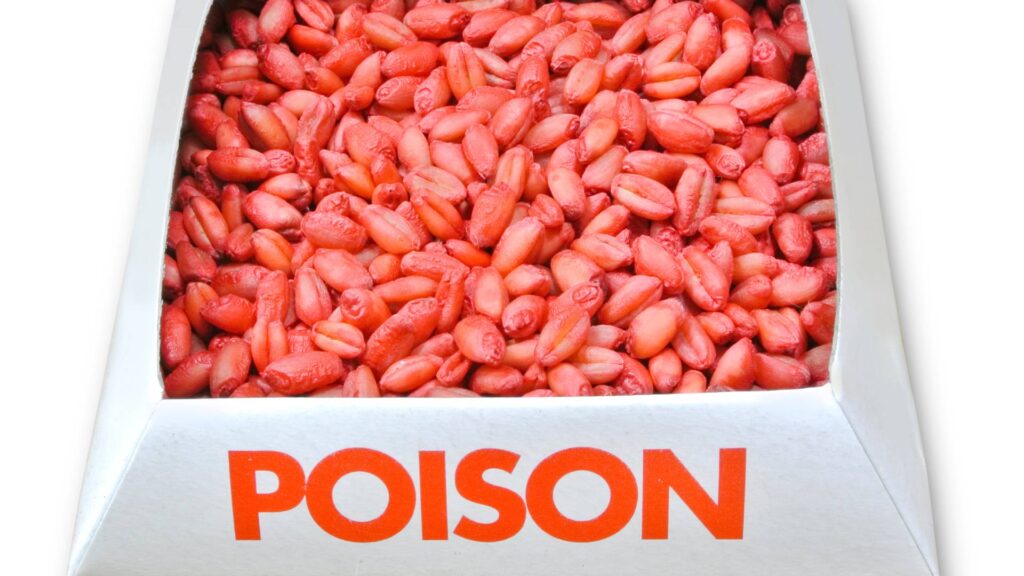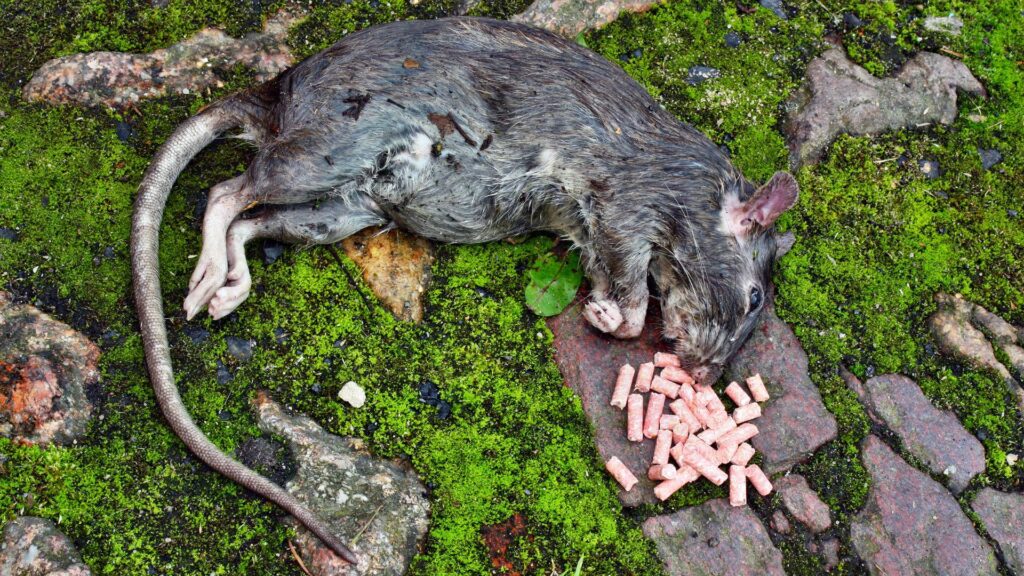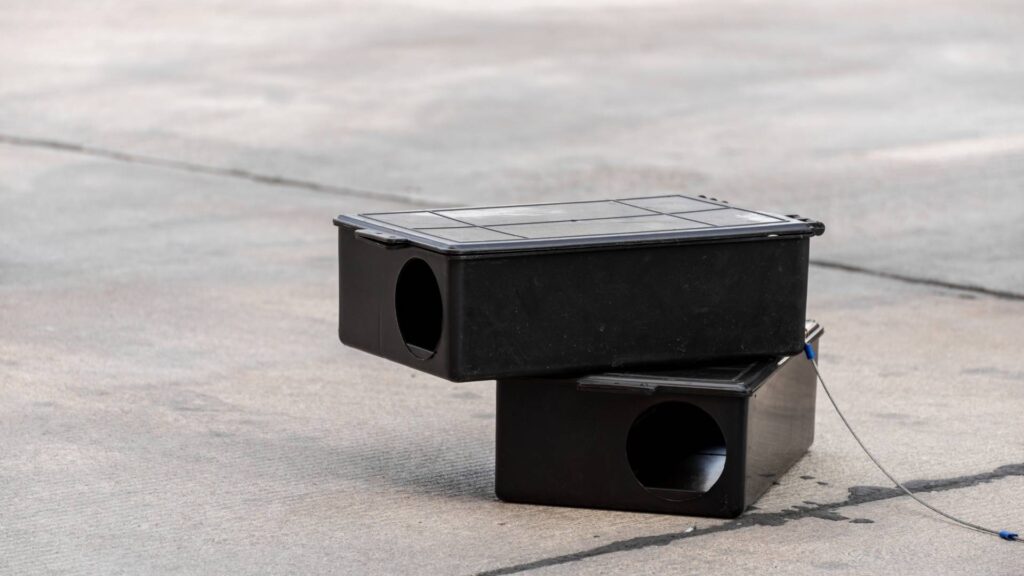Table Of Content
ToggleRat poison is a widely used method for managing rodent infestations but it comes with significant challenges and responsibilities. It’s crucial to understand the different types of rat poison and their effects, as misuse can lead to unintended consequences for non-target animals and the environment.
Safe and informed use is essential not only for effective rodent control but also for ensuring the safety of humans, pets, and wildlife. This balanced approach to pest management highlights the importance of knowledge and caution in the application of rat poison, making it a task that requires careful consideration and responsibility.
Rat poison, or rodenticide, is available in various formulations and active ingredients, each designed to target rodents in specific ways, addressing the critical concern of how do rats get in your house? The most common types include:
The safe use of rat poison is paramount to prevent accidental harm to off-target animals, humans, and the environment. Proper handling, storage, and disposal are essential to mitigate risks.

The effectiveness and lifespan of rat poison are influenced by several factors:
On average, rat poison remains active for a few days to several weeks, depending on the type and conditions. Signs of reduced potency include a lack of effectiveness in controlling rodent populations and visible deterioration of bait.
Anticoagulant rodenticides work by inhibiting Vitamin K, a crucial component in the blood clotting process, leading to poisoning and death. The effectiveness of these poisons can last anywhere from several days to weeks, requiring multiple feedings to achieve a lethal dose.
The slow action allows for the accumulation of the poison in the rodent’s system over time, and signs of intra-abdominal bleeding may be detected in the rodent’s urine as the poison takes effect. This delayed action is designed to kill rats without causing immediate suspicion among the rodent population, thereby increasing the likelihood of controlling the rodent population effectively.
Non-anticoagulant rodenticides, such as those containing neurotoxins or metal phosphides, act through different mechanisms. These poisons can lead to death more quickly, often within hours to a few days of ingestion, without the need for multiple doses to reach a lethal level.
Unlike anticoagulant rodenticides, these substances typically result in a faster, more immediate reaction, making them effective in situations where a quick reduction in rodent population is desired.
However, the absence of symptoms like those seen in anticoagulant poisoning (e.g., blood in the urine) means that monitoring for effectiveness may rely on direct observation of decreased rodent activity or finding deceased rodents.
Discover safer pest control solutions today and protect your environment.
To ensure safety when using rat poison and operating bait stations, follow these best practices that account for the toxicity of these substances:
In case of accidental ingestion of pesticide, immediate medical attention for humans or veterinary care for pets is critical.

Rat poison can have unintended consequences on wildlife, including birds of prey and scavengers that may consume poisoned rodents. To minimize environmental impact:
Consider non-chemical methods to do rodent control, such as:
Professional pest control services offer expertise in managing rodent problems effectively and safely, often employing integrated pest management strategies that minimize risks.
Take action for a safer home: Learn more about responsible rat poison use.

The responsible use of rat poison is critical to protect human health, pets, and wildlife. By understanding the lifespan and safe handling practices of rodent bait, individuals can make informed decisions about pest control.
Alternatives and professional services provide safer, often more effective solutions to rodent problems. It’s essential to weigh the risks and benefits of rat bait and consider professional advice to ensure a balanced approach to pest management.
Rats do not necessarily become more active after ingesting poison. Instead, they often experience lethargy and a decrease in physical activity as the poison begins to affect their system. This change in behavior is due to the toxic effects of the poison on their bodies, leading to weakness and reduced mobility.
After being poisoned, rats tend to seek secluded, hidden places. These locations can include dark, quiet areas within buildings or burrows in outdoor environments. The instinct to hide is driven by the rat’s feeling of sickness and vulnerability, prompting them to retreat to a safe space to die away from predators and disturbances.
Ready to tackle rodent issues safely? Click here for expert advice.
After eating poison, rats usually suffer from internal bleeding or neurological damage, leading to death. The specific effects depend on the type of poison consumed. Anticoagulant rodenticides cause Internal hemorrhage over several days, whereas neurotoxic poisons can lead to more immediate symptoms like seizures, leading to death within hours or days.
Your trusted pest control experts in Southern California. Keeping your neighborhood pest-free!